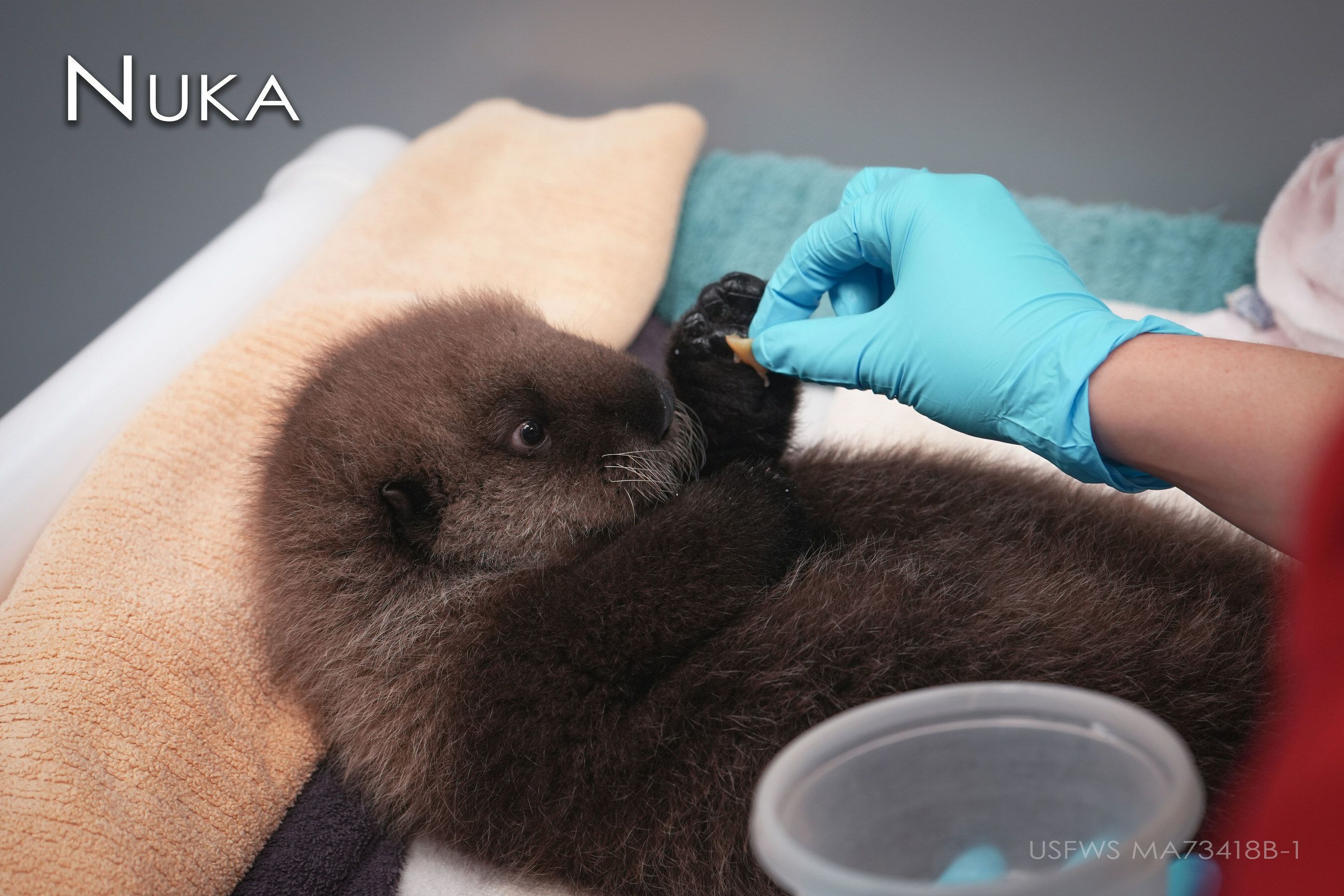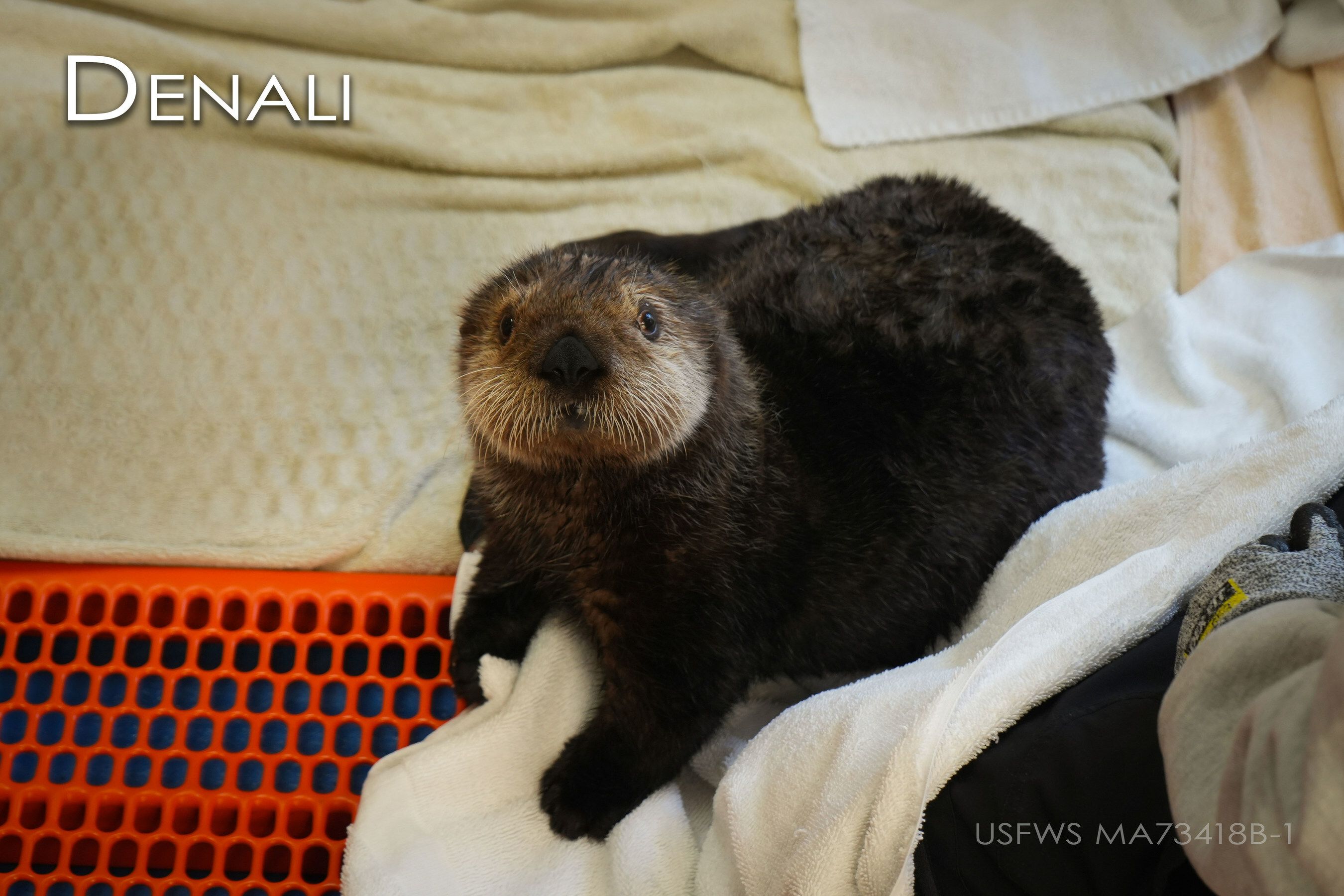Zoo cares for orphaned otter pups
The pups were found abandoned in Alaska and require 24/7 care
The Minnesota Zoo announced that it is caring for 2 sea otter pups found in Alaska. The 2 female sea otter pups were brought to the Minnesota Zoo thanks to their partnership with the Alaska Sealife Center (ASLC). Once receiving the initial triage care in Alaska, they were brought to the Minnesota Zoo to receive 24/7 care. According to an organizational release,1 the 2 pups were named Denali after the tallest peak in North America, and Nuka, named after the Alaskan island off the Kenai peninsula.
Nuka (Images courtesy of the Minnesota Zoo)

The team in Alaska found Nuka on September 9, 2023, when an off-duty ASLC staff member witnessed Nuka and her mother being attacked by an orca. After Nuka’s mother did not resurface after the attack, the ASLC deployed their Wildlife Response team, working with the US Fish and Wildlife Service (USFW), to rescue Nuka and bring her in to receive care.
Denali

Days before the attack on Nuka and her mother, ASLC received reports of an abandoned otter pup 5 miles up a river near Kenai, Alaska, an area reportedly not common for sea otters.1 The rescued pup, who would later be named Denali, was about 5 months old and presented with dehydration and malnourishment. After not locating her mother in the area, the ASLC, with permission from USFW, brought in the pup for care.
"It's always a challenge working with such young animals because their health status can change so rapidly," said explained Anne Rivas, DVM, Minnesota Zoo director of animal health, in the release.1
"We have separate spaces set up for each of the otters," explained Kurt Heizmann, Minnesota Zoo Director of Animal Care. "The youngest otter will be cared for in her own behind-the-scenes nursery."
Sea otter pups rely heavily on their mothers for the first year of their life. The mother, who often chases away the father of the pups, carries the pups on her stomach until they are about 2 months old when they thin start swimming and diving on their own.2 Once they are more than a year old, they leave their mothers and head out on their own.
The pair is currently receiving around-the-clock care at the Minnesota Zoo, where their health is being monitored and they are receiving assistance with eating, grooming, and swimming. Denali and Nuka have a long road ahead of them and will remain behind the scenes for the next few months.
Reference
- Minnesota Zoo caring for two orphaned sea otter pups. News release. Minnesota Zoo. October 27, 2023. Accessed October 27, 2023. https://prnmedia.prnewswire.com/news-releases/minnesota-zoo-caring-for-two-orphaned-sea-otter-pups-301970258.html
- Otter. The San Diego Zoo. Accessed October 27, 2023. https://animals.sandiegozoo.org/animals/otter